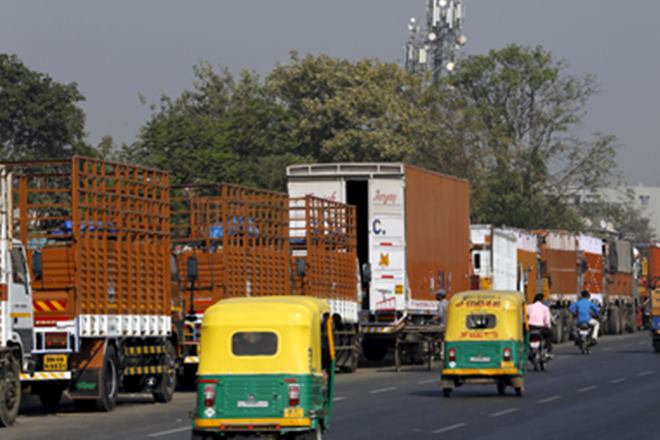GST uncertainty alongside demonetisation not good for doing business
The Financial Express
-
January 6, 2017 6:19 AM
With the eighth GST Council meeting failing to achieve the ever-eluding consensus on critical matters such as GST rates, dual control, taxing powers, etc, GST in India seems to be drifting away after being so near.

Despite eight successive meetings of the GST Council—that too, in just little more than three months—no firmed-up solution seems to be in sight. (Reuters)
With the eighth GST Council meeting failing to achieve the ever-eluding consensus on critical matters such as GST rates, dual control, taxing powers, etc, GST in India seems to be drifting away after being so near.
GST’s tumultuous journey in India began more than a decade ago—then finance minister P Chidambaram, while presenting the FY07 Budget, announced the Union government’s intention of introducing the GST on April 1, 2010. In hindsight, it is now clear that the assumption on the timeline for the Union and the state governments to arrive at a consensus on GST was grossly under-estimated. In fact, more than twice the length of time originally estimated has passed and the clouds of uncertainty on the actual implementation date still hover.
It is not that the Union and the state governments have been confronted with these issues only now. Well before the formation of the GST Council, these critical matters were fully known to both; however, they chose to discuss these near the end of the GST journey and close to the implementation date. One expected that all these decisions would be taken swiftly by the GST Council, that was formed after the Constitutional Amendment Bill on GST was passed, and that India would get to see cooperative federalism in action. Cooperative federalism calls for amicable and nimble relations between the Centre and the states, more so when the matters relate to issues such as tax revenues. Time is opportune for the Centre and the states to keep aside their respective disagreements and quickly work on a solution acceptable to all stakeholders and in the best interest of the nation. One should look at the long-term gains that the GST offers as also overcome the short-term pains that may arise during the transition.
Despite eight successive meetings of the GST Council—that too, in just little more than three months—no firmed-up solution seems to be in sight. Both the Union and the state governments have been vocal on arriving at the most acceptable solution; however, nothing of the sorts is visible so far. Uncertainty over these issues and the final date of GST implementation has put industry in a quandary. Fully convinced of the benefits that GST promises, many large companies had started serious preparations for transition to the regime as early as 2015, committing senior management, time and money to embrace the game-changing reform, notwithstanding the now defunct 1%-origin-based tax on inter-state supplies. With the returns on these investments delayed substantially, these companies are justifiably frustrated.
Most of the large businesses in India have finalised their business projections for FY18 based on multiple scenarios, assuming various dates of the GST implementation as also the likely rates. Hence, for the businesses, the budgeting exercise for FY18 has been more of an academic one than a practical one. The case with the Union as well as the state governments is not very different when it comes to the FY18 budget. Perhaps, this is the first time in the history of independent India that the Union Budget would be presented in a very uncertain and fluid scenario. Assuming that GST would be adding substantially to the GDP growth, any delay in implementing it is an opportunity lost forever for that financial year.
Was all this avoidable? Yes, perhaps, had all these critical issues been discussed ab initio. Keeping them pending for the last moment has added to the delay in GST implementation, notwithstanding other issues such as the impact of demonetisation on tax revenues, etc. The possibility of the GST being implemented from April 1, 2017, now looks faint and there seems to be no unison between the Centre and the states on agreeing to the new implementation date. The critical legislative steps, such as the passing of the CGST, IGST and GST Compensation Bills in the Parliament and passing of the SGST Bills in the state assemblies, are still pending. Given the fresh experience of the washed-out winter session in December 2016, the task of achieving all this before April 1, 2017, is a herculean one. No wonder, thus, various dates—starting from April 1 to Sept 15, 2017—are doing the rounds as the date of implementation. Here, too, the Union and the state governments do not appear to be on the same page. Though many state finance ministers have publicly claimed a new likely date, there seems to be no official communication.
This is the last thing industry expects, while working in already volatile market conditions. While the jury is not out on the exact impact of the demonetisation on the economy, doing business in this uncertainty is definitely not the best situation. In the whole process, the credibility of the country has been put at stake when it comes to firming up the tax reforms agenda. It is hoped that a consensus would finally emerge in the next meeting of the GST Council (scheduled for January 16). Unless there is consensus on all critical matters, all the preparations for GST—whether by the Union government (going ahead full steam on the GSTN initiatives) or by the state governments (like running GST training sessions) or by trade and industry (like reconfiguring supply-chains/IT systems)—would prove futile. But then, it is another meeting of the GST Council on another day!
The author, Rahul Renavikar is the CEO of Acuris Advisors Pvt Ltd. Views are personal